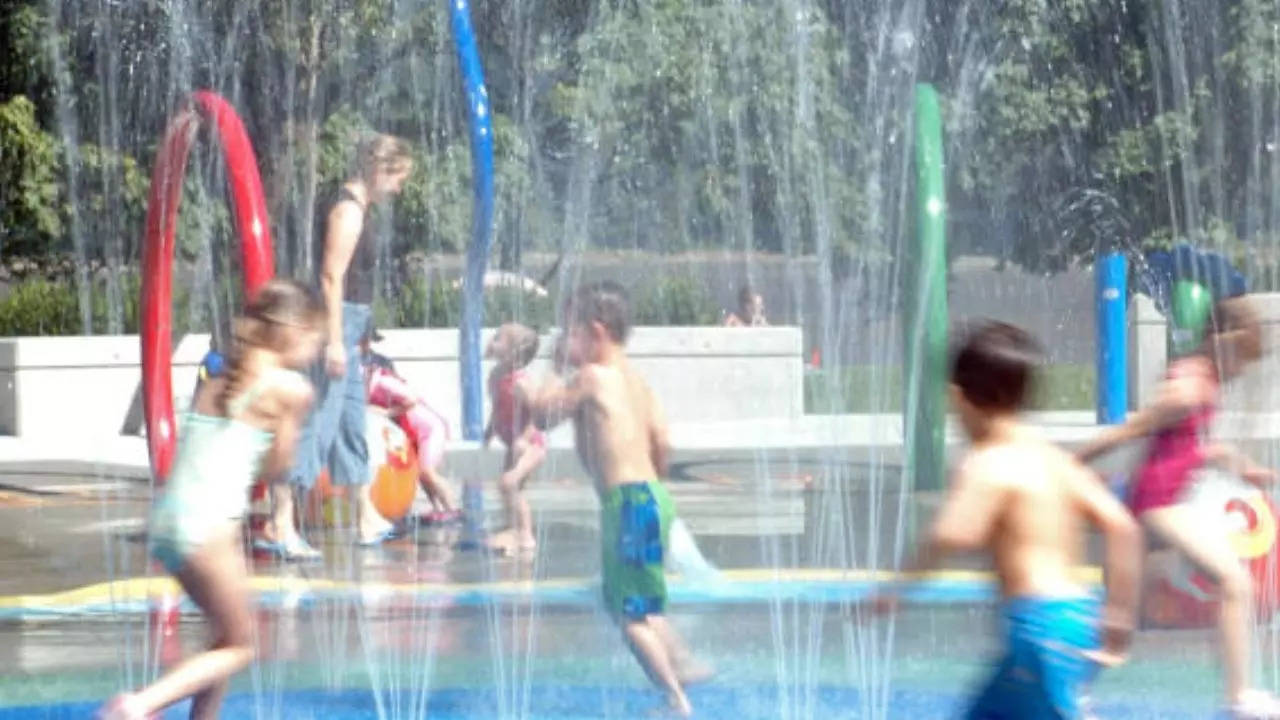-
news
-
Health
Is your child safe? CDC warns that splash pads can cause waterborne illnesses
Children love splash pads, which offer fun play in the water. Although the CDC warns of waterborne illnesses, there have been more than 10,000 cases linked to contaminated splash pads since 1997. Parents should ensure proper hygiene, avoid splash pads if children are sick and follow safety tips to prevent infection.

Is your child safe? The CDC warns that splash pads can cause waterborne diseases (Image credit: iStock)
Splash pads have become the center of attraction for children in water parks! With their colorful jets and playful fountains, these interactive play areas provide endless fun. Kids can run through the spray, giggle when unexpectedly splashed with water, and enjoy playing in safe, shallow water. But do you know that CDC has expressed concern about this waterborne diseases Connected to the splash pad? While kids enjoy the thrill of splashing around, parents should stay informed about proper hygiene practices, like encouraging bathroom breaks and avoiding swallowing water.
According to the CDC, between 1997 and 2022, more than 10,000 children in the United States fell ill after using splash pads. These outbreaks were primarily caused by Cryptosporidium, a parasite that triggers diarrhea and is spread by contaminated water. Symptoms often include fever, vomiting, and dehydration. Although no deaths have been reported, the CDC emphasizes the need for greater awareness and hygiene practices at splash pads to prevent infection.
How does contamination occur?
Cryptosporidium is often brought into splash pads by infected individuals. Children playing on or near water jets can pollute the water with feces. The parasite can then spread widely through the nozzle, putting other children at risk. Additionally, children may accidentally drink contaminated water, increasing their exposure to pathogens.
Splash pads use recirculated water treated with chlorine to reduce the transmission of bacteria and viruses. However, Cryptosporidium is resistant to standard chlorine levels. The concentrations required to kill the parasite would be harmful if swallowed, making prevention through proper use important.
expert recommendations
The CDC advises parents to avoid using splash pads if their children have diarrhea, especially for two weeks after a Cryptosporidium infection. Natalie Axum, an environmental health scientist at the Johns Hopkins Bloomberg School of Public Health, suggests that parents should carefully evaluate the timing of visits. For example, avoiding splash pads shortly before important events or travel can help reduce the risk of illness.
To increase safety, CDC epidemiologist Hannah Lauinger recommended that public health officials adopt the agency’s model aquatic health code. This set of guidelines provides best practices for the design, operation, and maintenance of water recreation facilities, including splash pads. Lauinger emphasizes that these measures are only effective when families and handlers follow proper hygiene and use protocols.
Management and treatment of infection
Most children who contract illnesses from splash pads recover without the need for hospitalization. Alexandra Brugler Yonts, MD, a pediatric infectious disease specialist at Children’s National Hospital in Washington, DC, tells SELF that rehydration is often enough for mild symptoms. Electrolyte solutions can help children recover within 10 days.
In severe cases, especially for children under one year of age or those unable to stay hydrated, medical intervention such as IV fluids may be necessary. Antiparasitic medications are rarely needed but may be used for individuals with weakened immune systems.
safe splash pad practice
While splash pads remain a popular summer activity, parents should take precautions to ensure their children’s safety. here are some tips:
– Make sure children use the bathroom before playing in the splash pad to reduce the risk of contamination.
-Encourage children to avoid drinking water from splash pads.
– Avoid splash pads if children have diarrhea or have recently recovered from an illness.
– Stay informed about sanitation practices and local splash pad maintenance standards.
Get the latest news live on Times Now with breaking news and top headlines from around the world.


